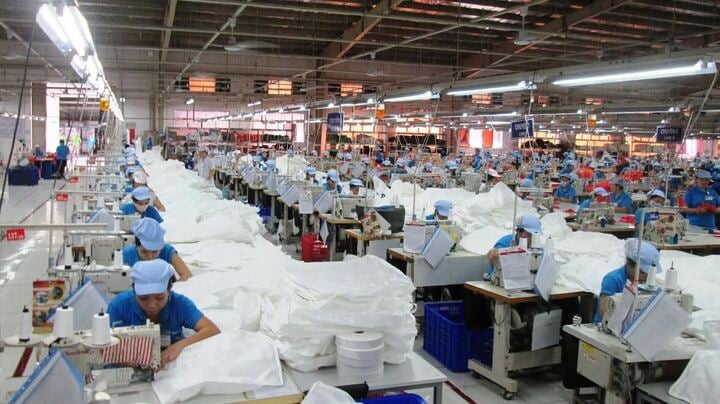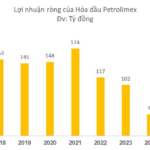The government has just issued Resolution No. 139/NQ-CP, announcing a plan to implement the National Assembly’s Resolution No. 198/2025/QH15 on special mechanisms and policies to promote the development of the private sector.
Accordingly, the government has instructed the Ministry of Finance to issue guidance on implementing the policy of exempting corporate income tax for a period of two years and reducing tax liability by 50% for the next four years for income derived from innovative startup activities of innovative startups, venture capital fund management companies, and innovation support organizations.
Income earned by individuals from transferring shares, capital contributions, rights to purchase shares, or rights to purchase capital contributions to innovative startups is exempt from personal income tax and corporate income tax. In addition, the government exempts personal income tax for a period of two years and reduces tax liability by 50% for the next four years for income earned by experts and scientists from innovative startups, research and development centers, innovation centers, and innovation support organizations.
Small and medium-sized enterprises are exempt from income tax for three years from the date of their first business registration certificate. The training and retraining costs incurred by large enterprises for small and medium-sized enterprises participating in the chain are deductible in calculating taxable income for corporate income tax purposes. This is to be completed by the end of 2025.

Innovative startups are exempt from income tax for the first two years. (Illustrative image)
The Ministry of Finance is also tasked with reviewing, amending, and supplementing, or reporting to competent authorities for amendment and supplementation, legal documents related to the non-application of the tax estimation method for business households and individuals from January 1, 2026.
The Ministry of Finance shall submit to the Government a document guiding the policy of allocating construction and goods procurement packages, mixed packages of goods and construction using the state budget with a package value of up to VND 20 billion to small and medium-sized enterprises, with priority given to enterprises owned by youth, women, ethnic minorities, and people with disabilities, and enterprises in mountainous, border, and island areas. This is to be completed by the end of 2025.
In addition, the Resolution also mentions support for research, development, and application of science and technology, innovation and digital transformation; support for improving corporate governance and human resource quality; and support for the formation and development of medium and large enterprises, and private economic groups with regional and global reach.
Under this Resolution, the Government assigns the State Bank to submit a document guiding the policy of the State supporting an interest rate of 2%/year through the system of commercial banks for enterprises in the private sector, business households, and individuals borrowing capital to implement green, circular projects, and apply environmental, social, and governance (ESG) standards. This is to be completed by the end of 2025.
The Ministry of Finance shall submit to the Government for issuance of a document guiding the policy of the State supporting an interest rate of 2%/year through state financial funds outside the state budget for enterprises in the private sector, business households, and individuals borrowing capital to implement green, circular projects, and apply ESG standards. This is to be completed by the end of 2025.
Strict handling of harassment of enterprises
For the same content of state management, if an inspection has been carried out, there shall be no examination or vice versa for enterprises, business households, and individuals within the same year, except in cases with obvious signs of violation.
“Strictly handle acts of abusing inspection to harass and cause difficulties for enterprises and business households. Publicly announce the inspection plan on the portal so that the business community and business households know and coordinate,”
the Resolution emphasizes.
The government also directs the promotion of online and remote inspection; priority is given to inspections based on electronic data, and direct inspections are minimized. Tools and solutions to warn businesses and business households of the risks of legal violations based on integrated management data are to be built and published on the units’ pages and portals. Agencies and units resolutely fight against counterfeit, smuggled, and infringing goods to protect the legitimate rights and interests of legal businesses and business households.
The Ministry of Public Security shall complete the draft Decree guiding the Law on Data to promote data sharing and facilitate online and remote inspection and verification. This is to be completed by the end of 2025.
The Ministry of Finance shall take the prime responsibility and coordinate with the ministries managing industries to review the list of conditional business lines stipulated in the Law on Investment to study and reduce unnecessary business conditions. This is to be completed by December 31, 2026.
The Ministry of Industry and Trade shall promote the implementation of the Law on Competition and its guiding documents to ensure a fair, equal, and transparent competitive environment among economic sectors; strictly handle acts of abusing dominance and unfair competition; and improve the effectiveness of the activities of the National Competition Committee.

The government requests the review and removal of obstacles to the development of private enterprises by December 31, 2025. (Illustrative image)
Review and remove obstacles to the development of private enterprises
The Government requests ministries, sectors, and localities to improve the business environment and perfect mechanisms and policies on inspection, examination, licensing, certification, competition, and bankruptcy of enterprises.
By December 31, 2025, at the latest, the units must complete the review and removal of unnecessary business conditions, overlapping regulations, and those that are unsuitable and hinder the development of private enterprises; reduce the time for handling administrative procedures by at least 30%, reduce compliance costs by at least 30%, and reduce business conditions by at least 30%, continuing to cut more deeply in the following years.
The Government requests a thorough digital transformation to cut down on the time for handling administrative procedures, compliance costs, and business conditions in regulations on market entry and exit, land, planning, investment, construction, taxes, customs, insurance, intellectual property, standards, and norms. Provide public services to businesses and business households regardless of administrative boundaries.
Ministries, sectors, and localities must ensure the completion of the objectives and roadmap stipulated in the Government’s Resolution No. 66/NQ-CP dated March 26, 2025, on the program to cut and simplify administrative procedures related to production and business activities for the years 2025-2026. At the same time, they must urgently review the business investment conditions to amend or propose amendments to fundamentally shift business conditions in the form of licenses and certifications to the implementation of business condition declarations and improve the effectiveness of post-inspection work. This excludes a few sectors that must have a permit as prescribed by law and international practice, to be completed in 2025 and 2026.
Ministries, sectors, and localities shall review and classify inspection subjects, putting an end to overlapping and prolonged inspections of the same content and field. The number of inspections at enterprises, business households, and individuals, including inter-sectoral inspections, shall not exceed once a year, except for unexpected inspections when there are obvious signs of violation.
Thailand’s Corporate Giants Eye $10 Billion Investments in Vietnam, Prime Minister Underlines Key Attraction.
Thailand’s leading corporations are committed to their long-term presence and expansion in Vietnam. With a steadfast dedication to the country, these corporations are poised to strengthen their foothold and contribute significantly to Vietnam’s economic landscape.
Over 1.5 Million Delegates Attend National Conference to Propagate and Implement Resolutions 66 and 68
“On Monday, May 18th, the Political Bureau and the Secretariat held a nationwide conference to promulgate and implement Resolution No. 66-NQ/TW, dated April 30, 2025, issued by the Political Bureau regarding the innovation of legal construction and enforcement to meet the country’s development demands in the new era. Additionally, they also discussed Resolution No. 68-NQ/TW, dated May 4, 2025, which focuses on the development of the private economy.”
“A Project Once Abandoned by Foreign ‘Sharks’ and Sold to PVN for $1, Now Brings in Billions of Dollars Annually.”
Between 1993 and 1999, the project was passed between various foreign operators, each of whom eventually withdrew. It wasn’t until 2003, when it was acquired by PVEP, that the project began to flourish and show promise.










![[Photo Essay]: Experts, Managers, and Businesses Unite to Forge a Path Towards Sustainable Green Industry](https://xe.today/wp-content/uploads/2025/07/z678592918-150x150.jpg)


![[Photo Essay]: Experts, Managers, and Businesses Unite to Forge a Path Towards Sustainable Green Industry](https://xe.today/wp-content/uploads/2025/07/z678592918-100x70.jpg)







